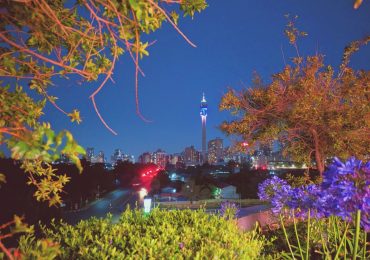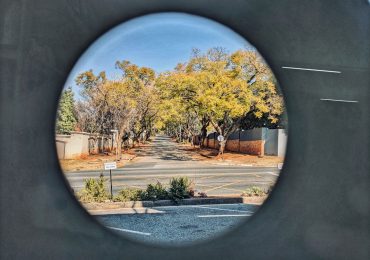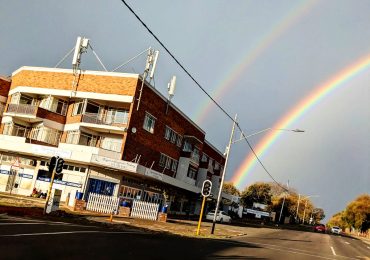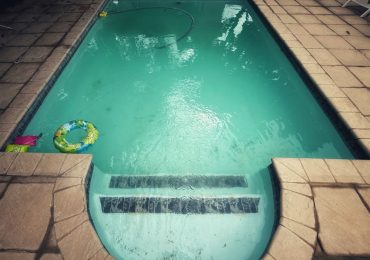The shortlist for the 2018 Nigeria Prize for Literature has been announced.
The prize was founded in 2004, and is awarded annually to honour ‘literary erudition by Nigerian authors’. The award rotates between four genres: fiction, poetry, drama and children’s literature.
With prize money of US$100,000 (about R1,3 million), sponsored by natural gas producing company Nigeria LNG Limited, the Nigeria Prize for Literature is the richest literary award in Africa and one of the richest in the world.
This year’s prize will reward a work of drama. According to the judging panel, the 2018 longlist was dominated by ‘the struggle for political control and power play’.
2018 Nigeria Prize for Literature longlist
- Death and The King’s Grey Hair by Denja Abdullahi (Kraft Books)
- Embers by Soji Cole (Emotion Press)
- The Rally by Akanji Nasiru (Kraft Books)
The winner will be announced by the Advisory Board for the Nigeria Prize for Literature in October.
The chairman of the panel of judges, Matthew Umukoro, is professor of Theatre Arts at the University of Ibadan. Other members of the judging panel are Mohammed Inuwa Umar-Buratai, professor of Theatre and Performing Arts and the Dean of the Faculty of Arts at the Ahmadu Bello University, Zaria, and Ngozi Udengwu, senior lecturer in the Department of Theatre and Film Studies at the University of Nigeria, Nsukka.
From The Nigeria Prize for Literature Advisory Board:
Embers, by Soji Cole, focuses on life in one of the Internally Displaced People’s (IDP) Camps in Northern Nigeria. The characters gave testimonies of their ugly encounters in Sambisa Forest, as well as their painful discovery of life in the IDP Camp. A member of the Faculty of Arts at the University of Ibadan, Soji Cole teaches undergraduates play writing at the Department of Theatre Arts.
In Death and The King’s Grey Hair, Denja Abdullahi, a literary essayist and National President of the Association of Nigerian Authors (ANA), confronts the issue of perpetuation in power, where rulers, like the king in this drama, employ all sorts of devices to cling on to power, long after they have overstayed their welcome.
Akanji Nasiru’s The Rally, addresses the contemporary political theme of youth versus age. Nasiru is a professor of Performing Arts, Bowen University, Iwo, Osun State.
The judges expressed their delight at the high standard of writing evident in the entries for the competition this year. Prof. Umukoro said all three plays have high literary qualities of effective dialogue, good dramaturgical structure, skilful handling of suspense and credible characterisation, which have seen them through to this stage of the competition.
The Advisory Board for the Nigeria Prize for Literature is Professor Ayo Banjo, two-time Vice-Chancellor of the University of Ibadan; Professor Jerry Agada, former Minister of State for Education and former President of the Association of Nigerian Authors; and Professor Emeritus Ben Elugbe, former President of the Nigerian Academy of Letters and president of the West-African Linguistic Society (2004-2013). The international consultant to the Advisory Board for this year’s prize is Jonathan Haynes, professor of English at Long Island University in Brooklyn.
Previous winners of the Nigeria Prize for Literature are Gabriel Okara for The Dreamer: His Vision and Ezenwa Ohaeto for Chants of Minstrel (co-winners, 2005, poetry); Ahmed Yerima for Hard Ground (2006, drama); Mabel Segun for Readers’ Theatre: Twelve Plays for Young People and Akachi Adimora-Ezeigbo for My Cousin Sammy (co-winners, 2007, children’s literature); Kaine Agary for Yellow Yellow (2008, prose); Esiaba Irobi for Cemetery Road (2010, drama, posthumous); Adeleke Adeyemi for The Missing Clock (2011, children’s literature) ; Chika Unigwe for On Black Sisters’ Street(2012, prose); Tade Ipadeola for The Sahara Testaments (2013, poetry); Sam Ukala for Iredi War (2014, drama); Abubakar Adam Ibrahim for Seasons of Crimson Blossoms(2016, prose); and Ikeogu Oke for The Heresiad (2017, poetry).





